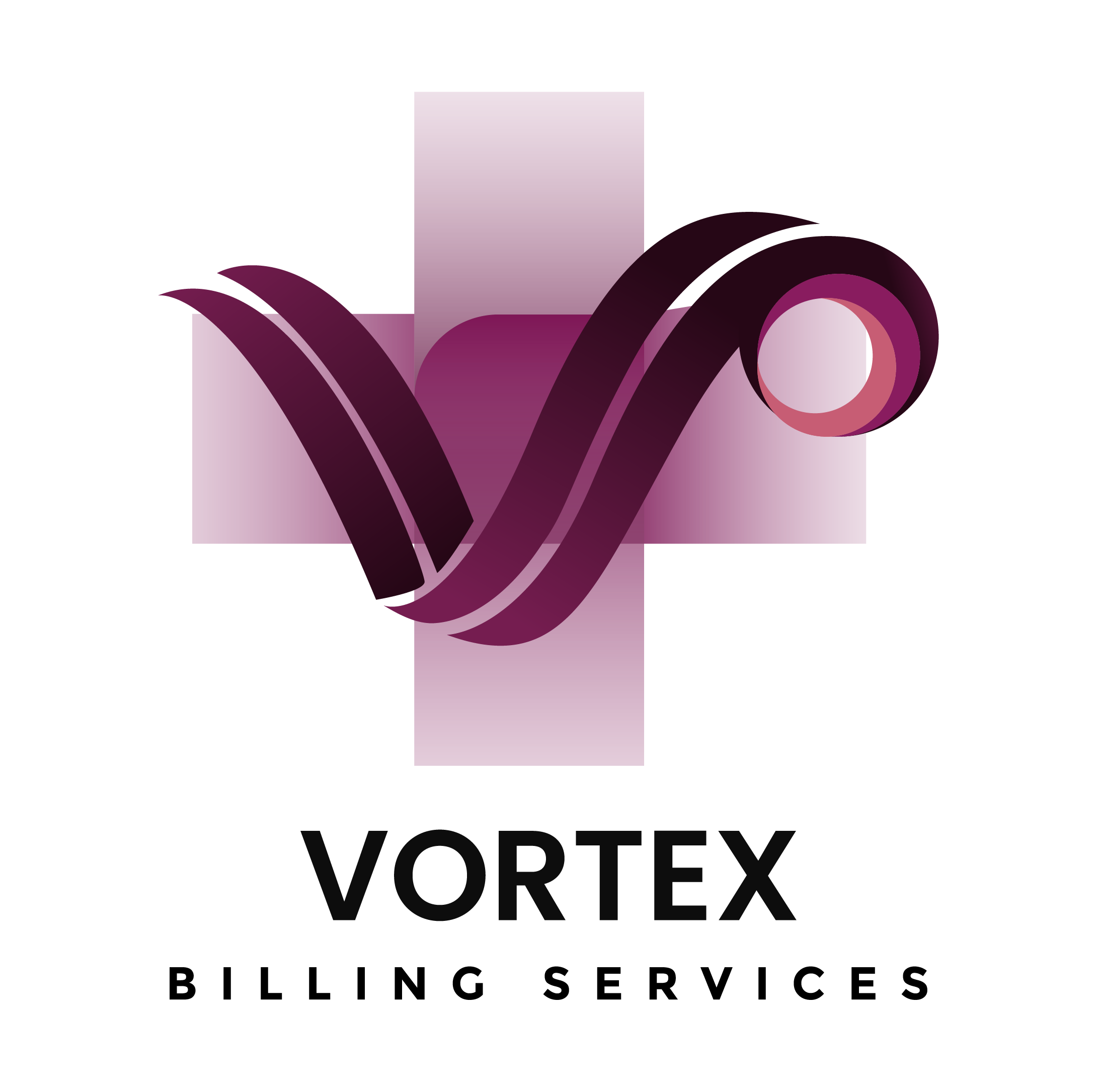Boost Your Healthcare Practice’s Financial Health in 90 Days with RCM Medical Solutions
If you’re looking to significantly improve your healthcare practice’s financial performance in under 90 days, RCM Medical is your answer. Revenue Cycle Management (RCM) medical services are designed to optimize how your practice handles billing, collections, insurance claims, and financial processes. By partnering with the right RCM medical service provider, you can drastically reduce administrative burdens, minimize payment delays, and ultimately improve your practice’s cash flow in just three months. With RCM medical solutions, you’re not only speeding up reimbursements but also building a system of accuracy, compliance, and financial health that supports long-term growth.
Understanding RCM Medical and Its Role in Healthcare
What Is RCM Medical?
RCM Medical, or Revenue Cycle Management in the medical industry, is a strategic process that manages the entire financial lifecycle of a patient — from scheduling and registration to final payment of the balance. It’s not just billing. It’s an end-to-end system that includes coding, charge entry, insurance claim submission, denial management, and patient billing. At its core, RCM medical is designed to ensure that healthcare providers get paid for the services they deliver — accurately, efficiently, and on time.
In today’s ever-evolving healthcare environment, RCM medical services are no longer optional. They are essential. Medical practices in the USA, especially those dealing with Medicare, Medicaid, and private insurers, must deal with increasing complexities in billing regulations and compliance. By integrating advanced RCM medical systems, providers gain more control over financial operations without sacrificing patient care.
Technology also plays a crucial role in modern RCM medical services. Cloud-based platforms, AI-driven coding checks, and automated claim submissions are just a few features enabling practices to cut costs while boosting efficiency. Whether you’re a solo physician, a multi-specialty clinic, or a growing medical group, RCM medical offers scalable and customizable solutions tailored to your unique workflow.
Why RCM Is Crucial for Today’s Healthcare Providers
The U.S. healthcare system is notorious for its complexity. Payers impose different rules, deadlines, and documentation standards. Any mistake — whether in coding, eligibility checks, or claim formatting — can delay payments or result in denials. This is where RCM medical becomes vital.
Beyond financial efficiency, RCM ensures that your practice remains compliant with HIPAA regulations, payer requirements, and the constantly changing landscape of medical billing codes like ICD-10, CPT, and HCPCS. Accuracy isn’t just about money; it’s about maintaining your practice’s integrity and avoiding potential audits or penalties.
Also, consider the administrative burden on your in-house team. Medical office staff already juggle patient care, documentation, scheduling, and more. Adding the weight of complex billing can lead to burnout and errors. Outsourcing to a dedicated RCM medical provider means your team can focus more on patients while experts handle the revenue.
Moreover, RCM providers often offer insights and analytics. These reports help identify bottlenecks in your payment cycle, areas for cost-cutting, and opportunities for increasing revenue. For tech-savvy and expanding practices, this level of intelligence is a game-changer.
The Financial Challenges Faced by Healthcare Practices
Common Cash Flow Issues in Clinics and Practices
Cash flow problems in medical practices can often be traced back to poor revenue cycle management. Whether you’re running a small family practice or a growing specialty clinic, cash flow is your lifeline. Without it, you can’t pay staff, invest in new technology, or grow your business.
Let’s break down a few typical problems:
- Delayed Reimbursements: Insurance companies don’t pay on time unless everything in your claim is perfect — from coding to eligibility verification.
- Denied Claims: A significant portion of claims get denied due to errors, missing information, or non-compliance. Re-submissions delay payments by weeks or even months.
- Uncollected Patient Balances: High deductibles and out-of-pocket costs are the norm today. Practices often fail to collect these payments upfront or follow up after visits.
- Inadequate Billing Systems: Using outdated billing software or relying on manual processes is a recipe for inefficiency and lost revenue.
- Lack of Transparency: Many clinics don’t have a clear understanding of their financial performance due to limited access to real-time reporting or analytics.
RCM medical directly tackles each of these problems. By implementing a comprehensive RCM system, practices can automate critical functions, reduce human error, and ensure consistent collections.
Impact of Poor Billing and Coding Practices
Incorrect medical coding is one of the biggest financial drains for healthcare providers. Each wrong code can mean a denied claim, reduced reimbursement, or an audit risk. And with over 70,000 ICD-10 codes alone, accuracy is no small feat.
Poor coding and billing also harm the patient experience. Imagine a patient receiving multiple confusing bills for a single visit — or being told later that their insurance didn’t cover a service. These negative experiences hurt your reputation and patient retention.
RCM medical services use experienced coders, often certified and trained in specialty-specific rules, to ensure accurate and compliant billing. They also leverage technology such as coding validation tools and payer-specific rule engines to catch issues before claims are submitted.
Additionally, billing errors erode trust with payers. When a practice repeatedly sends faulty or incomplete claims, insurance companies are less likely to process them quickly — leading to even more cash flow delays. Implementing a trusted RCM medical partner helps maintain strong payer relationships, improves your clean claims ratio, and keeps money flowing into your account consistently.
Core Components of a Robust RCM Medical Strategy
Patient Pre-Authorization and Eligibility Checks
One of the earliest points of failure in the revenue cycle is eligibility verification. Imagine delivering a service only to find out days later that the patient’s insurance has lapsed or the procedure isn’t covered. That’s wasted time, effort, and money.
An effective RCM medical system automates insurance verification at the time of scheduling and again before the appointment. This double-layer check ensures accuracy and helps front-desk staff discuss financial responsibility with patients ahead of time.
Pre-authorizations are equally critical. Many services, especially high-cost imaging or surgical procedures, require insurer approval before they are performed. A robust RCM platform ensures these steps aren’t missed and all documentation is in place.
Other benefits of this proactive approach include:
- Increased upfront collections
- Fewer surprises for patients
- Reduced claim rejections
- Improved patient satisfaction
Eligibility checks may seem minor, but they set the tone for the rest of the revenue cycle. When done right, they make everything downstream — billing, collections, and reporting — more efficient.
Accurate Medical Coding and Charge Entry
Medical coding is the language of reimbursement. If your practice isn’t speaking it fluently, you’re leaving money on the table. Whether it’s ICD-10 for diagnosis or CPT/HCPCS codes for procedures, accuracy ensures timely and full reimbursement.
RCM medical services use certified coders with specialty-specific experience. This is crucial because dermatology, cardiology, oncology — each has its own coding quirks. A one-size-fits-all approach doesn’t work.
Automated charge entry systems help translate provider documentation into correct billing codes. Some platforms even use AI to recommend the most accurate codes based on visit notes or EMR inputs. This reduces dependency on memory or manual lookup — two common causes of error.
RCM coders also stay updated on changes from CMS (Centers for Medicare & Medicaid Services), payer-specific rules, and annual coding updates — keeping your billing compliant and audit-proof.
Claims Submission and Denial Management
Efficient claims submission is the heartbeat of any successful RCM medical system. When done right, your practice gets paid faster, with fewer rejections and resubmissions. But it’s not just about hitting “submit” — it’s about submitting clean claims that are accurate, complete, and fully compliant with payer requirements.
RCM medical services typically use automated claims scrubbing tools that catch errors before submission. These systems check for issues like:
- Missing patient or provider information
- Incorrect coding combinations
- Non-covered services
- Invalid policy numbers
Clean claims not only get reimbursed faster but also build better trust with insurers. The more accurate your submissions, the higher your practice’s “clean claims rate” which directly correlates with improved cash flow.
However, even the best practices face some denials. That’s why denial management is a critical part of RCM medical. Rather than simply writing off denied claims, an experienced RCM provider will analyze the root cause, correct it, and resubmit often within days. They’ll also use this data to prevent repeat errors, update training, and refine your billing workflows.
Ultimately, this tight loop of submission, feedback, correction, and resubmission keeps your revenue flowing and minimizes write-offs.
How RCM Medical Optimizes Cash Flow Quickly
Reduced Days in Accounts Receivable (A/R)
The longer a bill stays in Accounts Receivable, the less likely it is to be paid. In fact, industry data shows that after 90 days, the probability of collecting drops by more than 50%. That’s why reducing your Days in A/R is critical and RCM medical is the most effective way to do it.
With streamlined claims management, real-time eligibility verification, and denial resolution strategies, RCM medical providers can reduce A/R days significantly — often by 30% or more within just a few months. Instead of waiting 60–90 days for reimbursements, practices see payments within 20–30 days, sometimes even faster.
Key tactics include:
- Submitting clean claims on the first try
- Following up on unpaid claims proactively
- Tracking payer payment timelines and holding them accountable
- Setting up automated patient reminders and payment plans
Lower A/R days mean more cash in your bank account, less reliance on loans or credit, and better forecasting. It also allows you to reinvest in staff, technology, or patient experience.
Improved Clean Claim Rate
Your clean claim rate — the percentage of claims paid without edits or resubmission — is a direct indicator of RCM effectiveness. Most practices average around 75–85%, but top-performing practices (especially those using RCM medical services) reach 95% or higher.
Why does this matter?
- Clean claims are paid faster
- They reduce staff workload and rework
- They improve payer-provider relationships
- They prevent delays in patient collections
RCM medical services achieve high clean claim rates through a combination of expert coding, pre-submission edits, and compliance audits. They catch issues before claims ever reach insurers, eliminating costly back-and-forth.
Some services even provide monthly performance dashboards, letting you track clean claim rates, denial reasons, and reimbursement timelines in real time. With this level of insight, you can fine-tune your processes and boost revenue predictability.
Enhanced Patient Payment Collections
With rising co-pays, deductibles, and out-of-pocket costs, more of your revenue is now coming directly from patients. Yet many practices struggle to collect these balances efficiently.
RCM medical solutions help bridge that gap. They provide tools and strategies to:
- Collect at the point of care (or even before the visit)
- Offer online and mobile payment options
- Send automated payment reminders
- Provide clear, easy-to-understand patient statements
They also train front-desk staff to have confident, compassionate financial conversations. Instead of chasing down balances months later, you get paid sooner — while patients appreciate the clarity and convenience.
Improved patient collections mean fewer write-offs, less bad debt, and a stronger bottom line. And because RCM medical providers handle much of this process, your staff is free to focus on care, not collections.
Step-by-Step Timeline: 90 Days to Improved Cash Flow
Days 1–30: Audit, Analyze, and Align
The first 30 days of an RCM medical implementation focus on discovery and strategy. Your RCM provider will begin with a comprehensive audit of your existing processes, software, billing practices, and financial data.
Key activities during this phase:
- Reviewing A/R aging reports
- Identifying denial trends
- Auditing a sample of past claims
- Mapping out your current revenue cycle workflow
- Interviewing staff to identify pain points
From this analysis, the RCM medical team builds a custom roadmap for your practice. They identify quick wins, set goals, and align with your administrative team to ensure smooth implementation.
This phase also includes compliance reviews to ensure your billing processes meet HIPAA and payer-specific standards.
By the end of the first 30 days, your practice will have a clear action plan with KPIs, milestones, and a tailored approach to RCM medical success.
Days 31–60: Process Optimization and Staff Training
Once the strategy is in place, the second phase focuses on execution. Your RCM partner will begin rolling out new systems, training staff, and optimizing workflows.
This includes:
- Setting up or upgrading billing software
- Automating eligibility checks and claim scrubbing
- Updating coding practices based on audit findings
- Training front-desk and billing staff on new procedures
- Establishing reporting dashboards
During this phase, the provider often runs RCM services in parallel with your current process to ensure continuity and catch any transition issues early.
You’ll also begin to see improvements in claims processing, cleaner submissions, and fewer denials. While full cash flow impact may not yet be visible, the foundation is being laid.
Staff engagement is key here. The best RCM medical providers offer ongoing support, Q&A sessions, and performance check-ins to ensure buy-in and smooth adoption.
Days 61–90: Full Implementation and Monitoring
The final phase is all about going live. By now, your systems are optimized, your staff is trained, and your RCM provider is fully integrated with your practice.
Key milestones in this stage include:
- Full transition to outsourced billing or RCM platform
- Daily monitoring of claims and denials
- Weekly performance reports and cash flow tracking
- Regular communication with providers and staff
- Real-time troubleshooting and adjustments
By day 90, most practices see measurable improvements in key metrics:
- Clean claim rates up by 10–20%
- Days in A/R reduced by 20–40%
- Patient collections increased by 25% or more
You’ll also have access to analytics that help you forecast revenue, track payer performance, and identify areas for continued improvement.
Case Studies: Real Practices That Improved Cash Flow with RCM Medical
Case Study 1: A Mid-Sized Family Practice in Texas
Before implementing RCM medical services, this practice faced severe cash flow issues. With over 35% of claims being denied or delayed and patient collections under 50%, the clinic struggled to pay staff on time and had mounting operational costs.
After onboarding a technology-driven RCM medical service:
- Denials dropped by 60% within 45 days.
- The practice saw a 33% improvement in revenue collected from payers.
- Patient collections increased to over 75% due to better front-desk training and automated reminders.
By day 90, the clinic not only stabilized cash flow but also expanded operations by adding two more physicians. The RCM system had created a predictable, profitable revenue stream.
Case Study 2: Specialty Clinic in California (Orthopedics)
An orthopedic group in California found itself bogged down by complex coding issues and prior authorization delays. The result? High A/R days and multiple billing errors leading to payment delays.
After partnering with an RCM medical provider:
- Days in A/R dropped from 62 to 24 in three months.
- The clean claims rate increased from 78% to 97%.
- Revenue grew by 42% within the quarter, with faster insurance reimbursements and fewer denied claims.
More importantly, physicians could shift focus back to patient care instead of dealing with billing chaos.
Case Study 3: New Practice Launch in Florida
A group of newly licensed practitioners starting their private practice in Florida used RCM medical services from day one. With no existing billing infrastructure or staff, they outsourced the full revenue cycle to a third-party RCM medical provider.
Results within 90 days:
- The practice achieved profitability by month three.
- Real-time reporting and analytics enabled accurate financial forecasting.
- 95% of claims were paid within 21 days of submission.
Starting with RCM medical from the beginning helped them avoid the growing pains that most new practices endure, giving them a competitive edge.
Choosing the Right RCM Medical Provider for Your Practice
What to Look for in an RCM Medical Partner
Not all RCM providers are created equal. Selecting the right partner can make or break your practice’s financial success. Here’s what to consider:
- Specialty Experience: Make sure the provider understands the nuances of your medical specialty.
- Technology Stack: Look for automation, AI, cloud-based dashboards, and integrations with your EHR.
- Transparency: You should have access to real-time reports and performance metrics at all times.
- Compliance and Security: Ensure they are HIPAA-compliant and follow strict data privacy protocols.
- Customer Support: Responsive and knowledgeable support teams are crucial during transitions and problem resolution.
- Scalability: As your practice grows, your RCM partner should be able to scale with you.
A good RCM medical partner acts as an extension of your team — improving processes, educating staff, and supporting your mission to provide excellent patient care.
Questions to Ask Potential Providers
- How do you ensure coding accuracy for our specialty?
- What is your average clean claims rate?
- Do you offer performance dashboards or real-time analytics?
- How do you handle denials and appeals?
- Can you integrate with our existing EHR or billing software?
- What is your turnaround time for claims submissions?
- How will your services reduce our Days in A/R?
Their answers should show not only technical expertise but also a clear commitment to transparency and measurable results.
RCM Medical and Technology: A Powerful Combination
AI and Automation in Revenue Cycle Management
The future of RCM medical lies in intelligent automation. With AI, machine learning, and robotic process automation (RPA), practices can significantly streamline their workflows and reduce human error.
Here are some ways technology enhances RCM medical:
- Predictive Analytics: Anticipate claim denials before submission.
- Auto-Coding Tools: Suggest the most accurate codes based on documentation.
- Chatbots and IVR Systems: Improve patient communication and payment collection.
- Automated Eligibility Checks: Run verifications in real time with insurer databases.
- Revenue Forecasting: Predict cash flow based on claim status and historical data.
Technology reduces manual work, speeds up reimbursement, and gives your administrative staff more time to focus on patient engagement.
Integrations and EHR Compatibility
The best RCM medical services integrate seamlessly with your Electronic Health Records (EHR) system. This allows for:
- Real-time data sharing
- Fewer data entry errors
- Faster claim creation from charting
- Better patient follow-up and care coordination
Popular EHRs like Athenahealth, eClinicalWorks, Kareo, and Epic are compatible with many top-tier RCM systems. If your current platform is clunky or outdated, an RCM partner can also help you migrate to a better solution.
The Future of RCM Medical in the USA
Regulatory Changes and Their Impact
Healthcare regulations in the U.S. are constantly evolving and staying compliant is no small feat. From updates to the No Surprises Act to the ongoing rollout of value-based care models, practices must remain agile.
RCM medical providers help you stay ahead of:
- CMS policy changes
- MACRA and MIPS reporting
- ICD/CPT code updates
- State-specific billing laws
- Payer-specific rules and contract negotiations
Rather than reacting to changes, a skilled RCM partner will help your practice anticipate and adapt avoiding disruptions in cash flow and compliance issues.
The Rise of Outsourced RCM Services
Outsourcing RCM is becoming the new norm, especially among small to mid-sized practices. With staffing shortages and increasing complexity in billing, many clinics find it more cost-effective and efficient to outsource.
Benefits of outsourced RCM include:
- Reduced overhead and staffing costs
- Access to expert coders and billing specialists
- Faster claim turnaround
- Scalable solutions for growth
- Less administrative burden for in-house staff
As technology continues to advance and healthcare becomes more data-driven, outsourced RCM will play a bigger role in helping practices remain financially viable and competitive.
Conclusion
RCM medical services are more than just a billing solution they are a financial strategy. If your healthcare practice is struggling with delayed payments, denied claims, or poor patient collections, you don’t have to wait years to fix it. Within just 90 days, a reliable RCM medical partner can help you turn the tide, increase your cash flow, and build a sustainable path to growth.
From the first eligibility check to the final patient statement, every step of your revenue cycle matters. And when each of those steps is optimized through expert services and smart technology, your practice doesn’t just survive — it thrives.
If you’re in the USA and want to stay compliant, tech-forward, and financially strong, investing in RCM medical solutions is your next best move.
FAQs
- What is RCM medical, and how is it different from regular billing?
RCM medical encompasses the entire revenue process, from patient intake to final payment. It includes coding, insurance verification, claims submission, denial management, and patient collections — making it far more comprehensive than traditional billing. - Can RCM medical services really improve cash flow in 90 days?
Yes, with the right implementation strategy and provider, practices typically see significant improvements in claim approval rates, A/R reduction, and revenue collection within three months. - Is RCM medical suitable for small or new practices?
Absolutely. Small and new practices often benefit the most by avoiding early billing mistakes and establishing strong financial foundations from the start. - Are RCM services compliant with HIPAA and healthcare regulations?
Top-tier RCM medical providers adhere strictly to HIPAA and other compliance standards, ensuring patient data security and regulatory adherence. - How do I choose the best RCM medical partner for my clinic?
Look for a provider with experience in your specialty, robust technology, transparent reporting, responsive support, and a proven track record of improving cash flow for similar practices.



